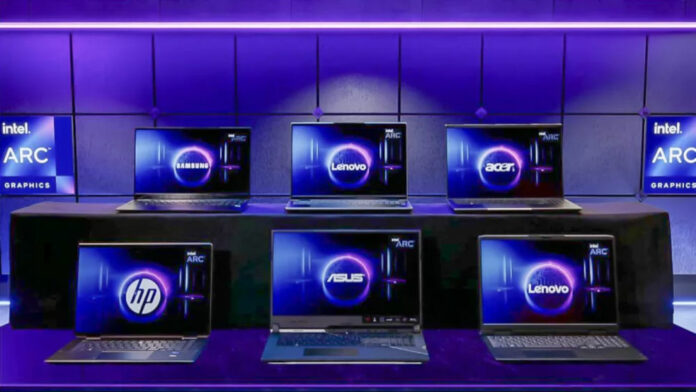Intel Arc A-Series GPUs have untapped performance, unlockable by disabling Dynamic Tuning Technology (DTT) in drivers, according to the most recent findings.
The Arc A-Series launch is currently exclusive to Asia-Pacific markets. A lot of what we know about performance is coming from South Korean reviewers or YouTubers.
Early gaming benchmarks numbers are not exciting, yet they haven’t shock us because Intel is restarting in the dGPU market after a 24-year absence; we assume drivers still need time to mature and bugs require ironing out.
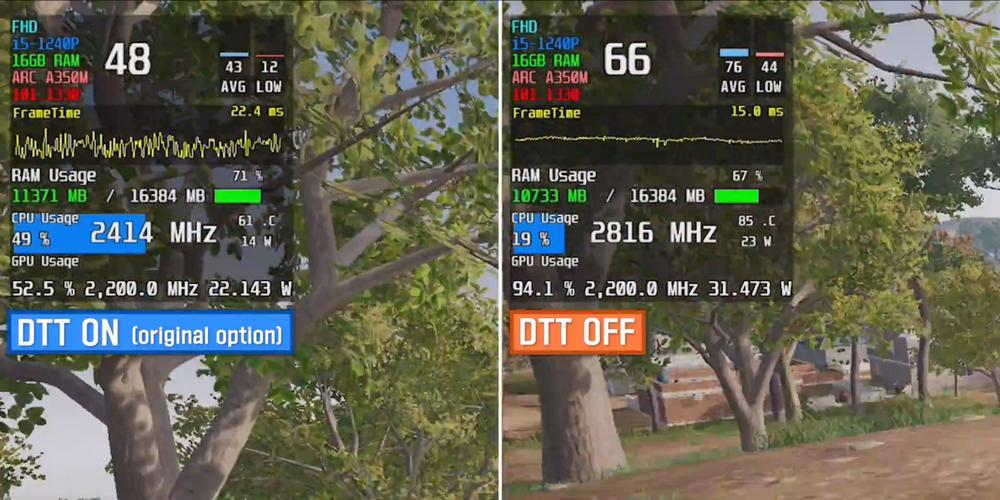
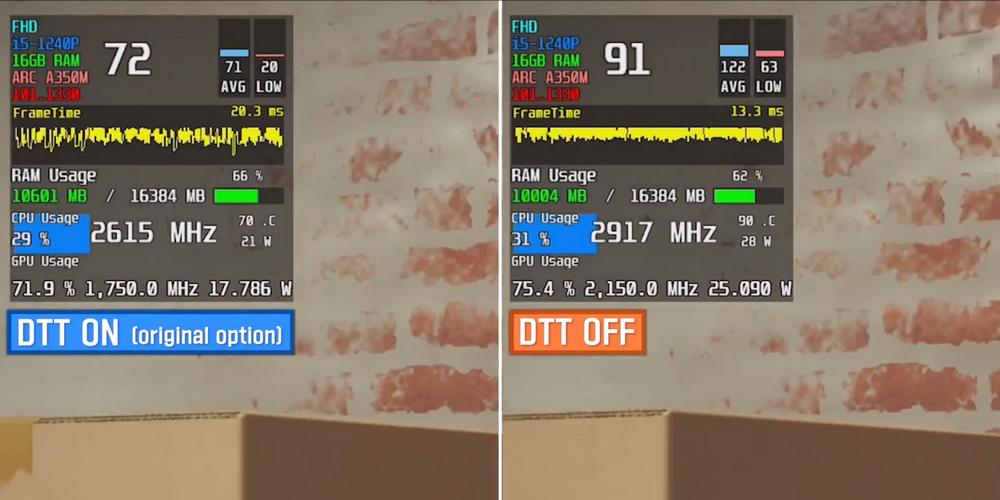
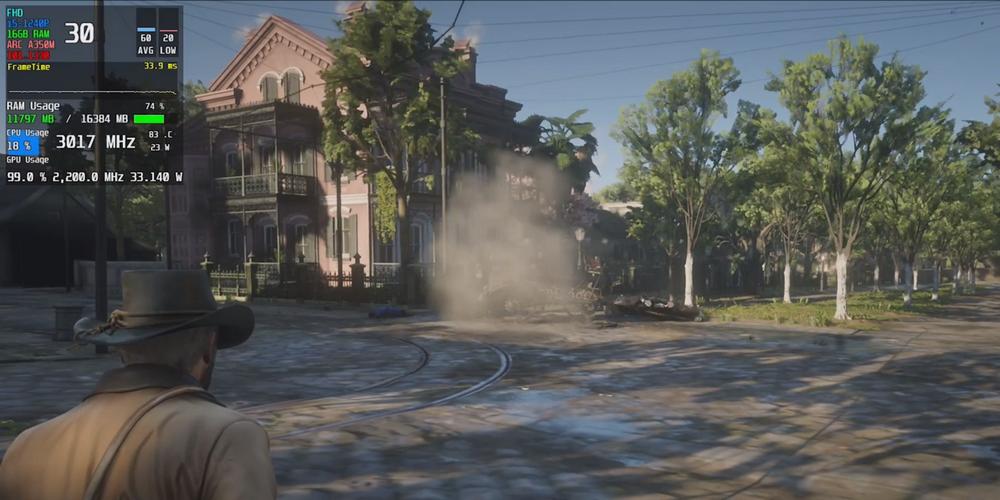
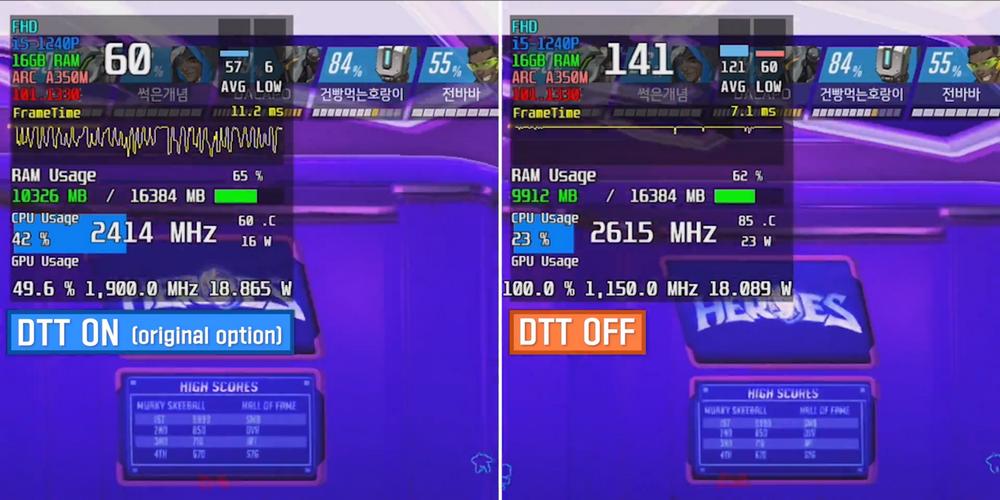
YouTube channel BullsLab Benchmarks managed to find the culprit of this initial sub-par performance. Turns out it’s DTT, which automatically and dynamically allocates power between an Intel CPU and an Intel discrete GPU to optimise performance and/or improve battery life.
In other words, DTT is limiting the amount of power delivered to the CPU/GPU. In BullsLab tests, we can see that power consumption goes up by around 10W with DTT off, allowing for more headroom for the CPU or GPU to stretch their muscles. This also shows in frequencies as they both hit higher and more stable clocks.
The good news is that driver-level DTT can be disabled, or most importantly, fixed and tweaked by Intel to deliver the intended performance.
The testing platform was a Galaxy Book 2 Pro featuring a Core i5-1240P (4 P-cores/8 E-cores/16 threads) plus an Arc A350M. Disabling DTT bumped FPS at FHD from 43 to 76 in PUBG, 71 to 131 in Rainbow Six: Siege, and 55 to 121 in Overwatch.
Even if the other games were tested without comparing DTT being active or not, they are still interesting as they show us what we can expect now. How about an average 130FPS in League of Legends (Very High), 44FPS in Elden Ring (High), 60FPS in Red Dead Redemption 2 (Medium), and 41FPS in Lost Ark (High). The question is how these laptops have shipped with DTT in such an unoptimised state? This surely can’t be good for Intel as first impressions count for a lot in this industry.
Finally, stuttering is still present, according to BullsLab, indicating another driver-related problem that still needs addressing.


